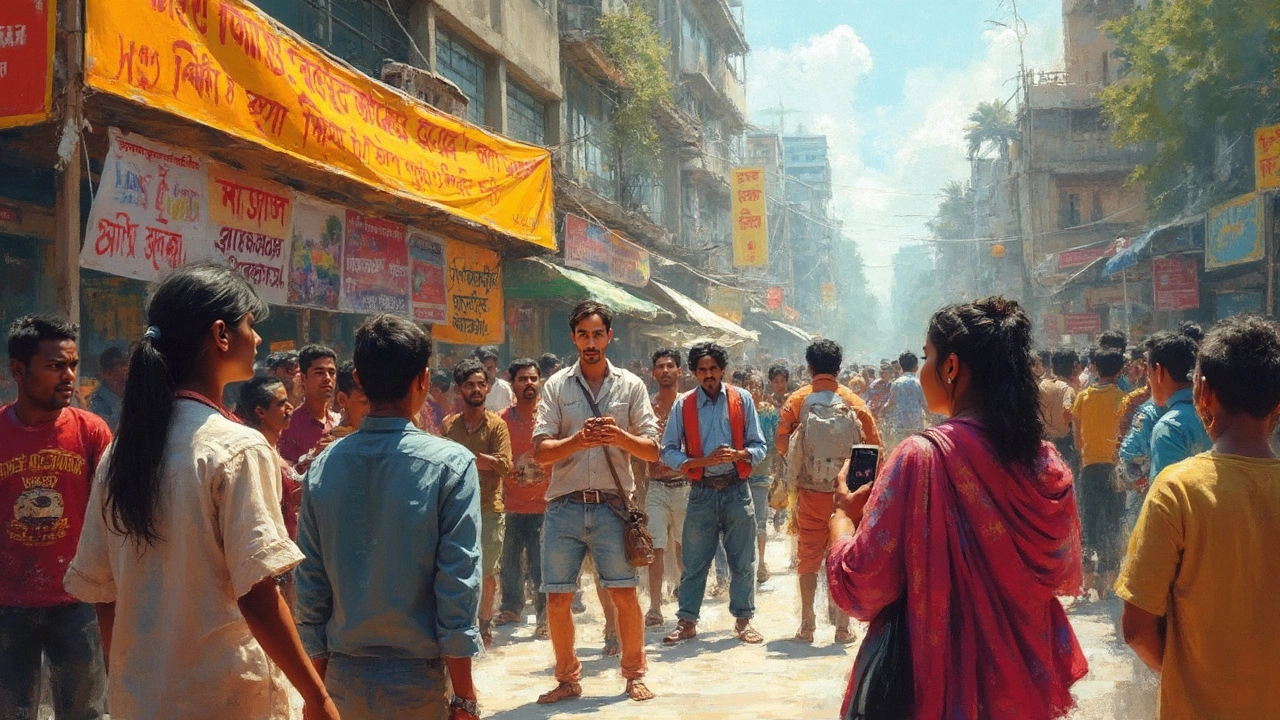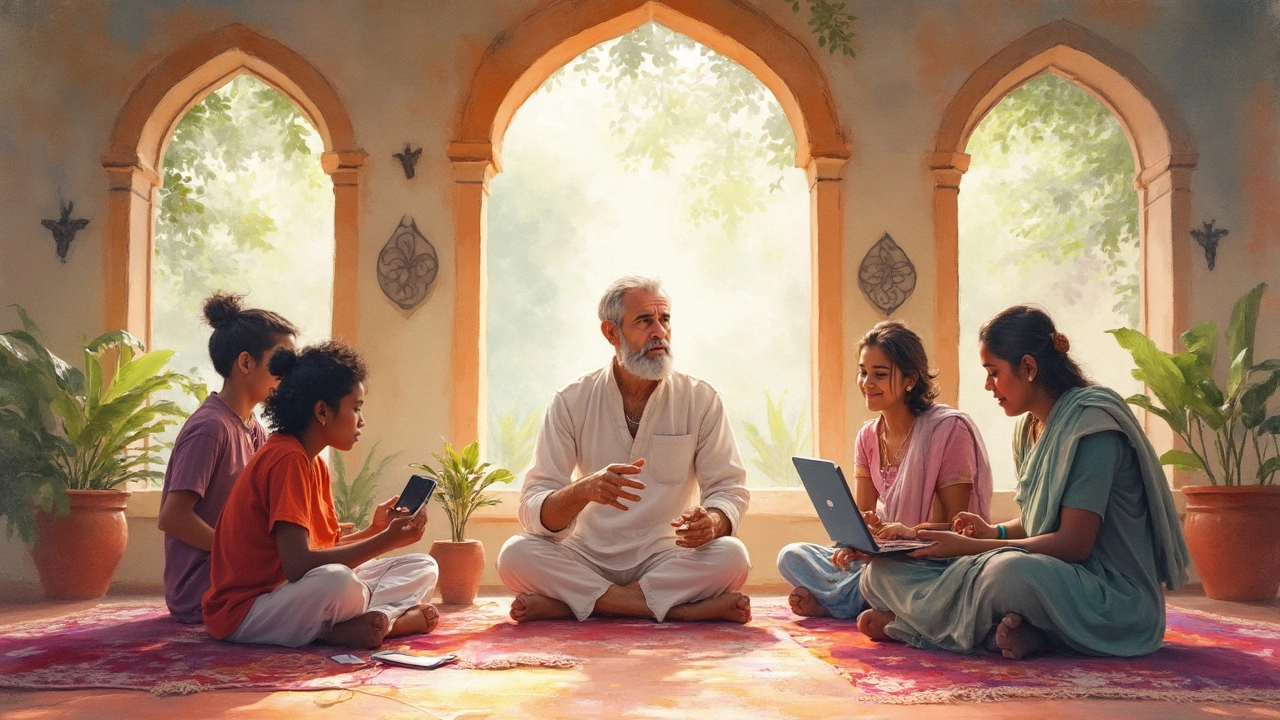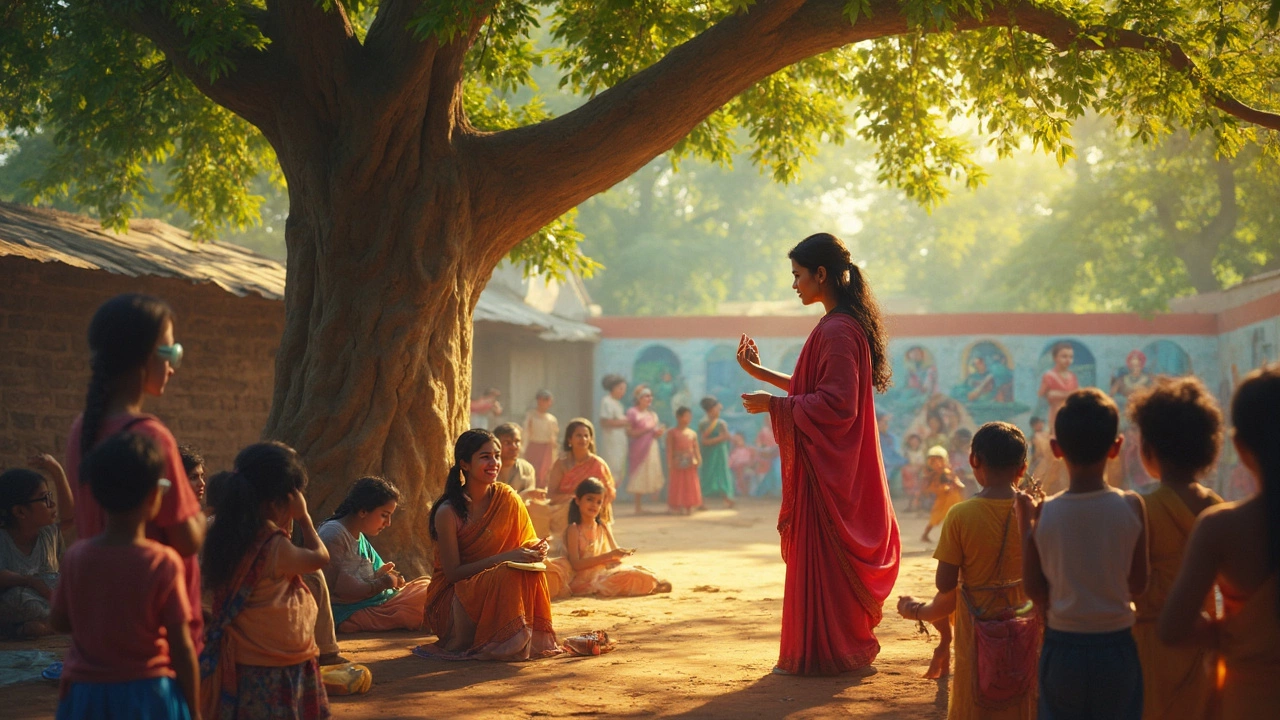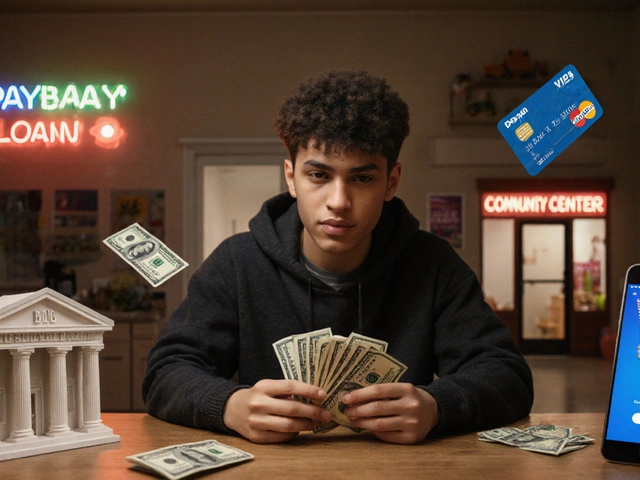When you think of community outreach, what comes to mind? It's more than just a job; it's a calling to connect, engage, and make a difference. People in outreach are like the linchpins holding communities together, communicating needs and resources between organizations and the public.
At its core, community outreach is about building relationships. Imagine you're the face of an organization—it's your responsibility to ensure their goals align with the community's desires. If you've ever organized a local event or created a program to help at-risk youth, you've dipped your toes into outreach work.
But what does a typical day look like? Expect to plan and attend community meetings, listen to diverse voices, and organize events that bring people together. It's all about fostering trust and creating a sense of belonging.
- Introduction to Community Outreach
- Key Responsibilities
- Essential Skills and Qualities
- The Impact of Outreach Work
- Tips for Success in Outreach Roles
Introduction to Community Outreach
Community outreach is like being a friendly neighbor with a mission: connect people with the resources, support, and information they need to thrive. It’s about creating meaningful connections and helping neighborhoods become more vibrant and sustainable. But what does that look like in practice?
At its essence, community outreach is about forming partnerships and coalitions. These specialists often work with non-profits, government agencies, and local groups to identify needs and develop programs that serve the community. This might involve anything from health initiatives and educational workshops to food drives and employment fairs.
What's particularly interesting is the role of data and feedback in outreach work. By collecting community feedback and analyzing demographic data, specialists can tailor their initiatives to address specific issues faced by residents. For example, if a community faces food insecurity, an outreach program might focus on setting up local food banks or nutrition education workshops.
Why Community Outreach Matters
Outreach isn't just about providing services; it's about empowerment. When people feel heard and seen, they're more likely to engage, participate, and invest in their communities. This, in turn, leads to stronger, more resilient neighborhoods.
Plus, effective community outreach helps build trust. It bridges gaps between various community members and organizations, fostering a sense of unity and shared purpose. This is especially important in diverse areas where achieving harmony can be a challenge.
So, whether you're organizing a community clean-up or advocating for policy changes, outreach is all about making a real difference in people's lives. And it starts with listening, learning, and leading with compassion.
Key Responsibilities
So, what exactly does an outreach specialist do all day? Well, it's just like being the glue that holds the community and organizations together. The key responsibilities can be pretty diverse, but they share a common goal: connecting people and resources.
Building Strong Relationships
This is all about making and keeping connections. Whether it's talking with community members, nonprofits, or local businesses, you'll be the go-to person for fostering these relationships. You might have to organize face-to-face meetings, send emails, or even pick up the phone for a good old-fashioned chat.
Developing and Implementing Programs
Here's where you get to be creative! You'll often be responsible for creating and rolling out community programs. Think workshops, support groups, or even festivals. It's all about listening to what the community wants and needs, and then making it happen.
Public Speaking and Advocacy
Public speaking is often a big part of the job. You'll represent your organization at community events, spreading the word about your programs and goals. Advocacy plays a huge role, too, especially when you're pushing for policy changes that benefit the community.
Tracking and Measuring Success
No one wants their hard work to go unnoticed, right? Part of your role is to gather data and report on how programs are working. It's about showing the impact of your efforts with clear evidence. Here's a simple metric table you might use:
| Program | Participants | Outcome |
|---|---|---|
| After-School Tutoring | 150 | 80% improvement in grades |
| Job Skills Workshop | 75 | 60% job placement |
This data helps make sure things are on track and shows everyone the real changes happening, thanks to the community outreach efforts.

Essential Skills and Qualities
Being stellar at community outreach means having a unique mix of skills and personal qualities. It's not just about what you do, but how you do it. Let’s break down what you need to become an effective outreach specialist.
Communication is Key
First things first, you've got to be great at communicating. Whether it's through email, social media, or face-to-face meetings, knowing how to clearly express ideas and information is crucial. It's not just about talking; listening actively and understanding the community’s needs are just as important.
Organizational Skills
Ever juggled multiple commitments at once? Strong organizational skills are vital. From planning events to coordinating volunteers, managing various tasks efficiently keeps everything running smoothly.
Empathy and Cultural Awareness
Do you genuinely care about people? Empathy allows you to connect meaningfully with different groups, respecting cultural backgrounds and individual perspectives. Being culturally aware ensures your approach is sensitive and inclusive.
Adaptability
Ready to tackle the unexpected? Flexibility in adapting to changing conditions or new priorities helps maintain effectiveness. Surprise challenges come with the territory, so having the ability to pivot is a huge plus.
Passion for Public Engagement
Finally, love for public engagement fuels your work in community programs. A genuine passion for making a difference energizes you and inspires others to get involved.
Here's a quick snapshot of what can set you apart:
- Excellent verbal and written communication
- Strong organizational skills
- Empathy and cultural awareness
- Adaptability
- Passionate about public engagement
The Impact of Outreach Work
Community outreach work is massive in its ability to bring about change, and it does so in some pretty impressive ways. Not only do these efforts enhance public understanding and support for various programs, but they also address specific community needs like education, health, and social welfare.
Boosting Community Engagement
One of the most significant impacts of outreach work is getting people involved. It encourages civic engagement and volunteerism, which can be vital for keeping a community vibrant and connected. It’s all about making people feel they’re part of something bigger, promoting activism, and even inspiring the next generation to be proactive.
Driving Real Change
You might find it surprising to know that outreach initiatives often lead to immediate and impactful changes. For example, an outreach program focusing on health education in underserved areas could lead to a noticeable decrease in preventable illnesses. Through education and resources, these programs can significantly impact people’s lives by giving them tools to make better decisions. Community outreach is integral in addressing issues like homelessness, addiction, and inequality.
Creating Ripple Effects
What’s really fascinating is the ripple effect these programs can have. Imagine a new job training initiative that helps people gain the skills needed for employment. Not only does it improve the economic status of the individuals involved, but it strengthens the whole community by reducing unemployment rates and boosting local economies.
Check out this data from a recent study on outreach effectiveness:
| Impact Area | Percentage Improvement |
|---|---|
| Education Initiatives | 25% |
| Health Programs | 40% |
| Employment Assistance | 35% |
These numbers show just how significant these initiatives can be, not only for individuals but for the entire community fabric. The tangible positive outcomes are endless, with healthier, better-educated, and more financially secure individuals benefiting everyone.
Building Bridges
Another crucial part of community outreach is its role in building bridges between diverse groups. It fosters communication, empathy, and understanding across different cultural, social, and economic lines. This can lead to more cohesive communities that respect and appreciate differences, leading to smoother collaboration on larger initiatives.
It’s clear that the power of outreach goes well beyond the surface, diving deep into what makes communities function better. That’s where the heart of this work lies—making lasting, meaningful change on both individual and collective levels.

Tips for Success in Outreach Roles
Being a successful community outreach specialist requires more than just a passion for helping people. It takes strategy, empathy, and some insider know-how to make a real impact. Here's what you need to know to thrive in this role.
1. Understand Your Community
First things first, get to know the people you're serving. Spend time in the neighborhoods, listen to local concerns, and build trust. The better you understand the community, the more effective your programs will be.
2. Communicate Clearly
Communication is key in any outreach role. Whether you're writing emails, hosting meetings, or speaking at events, be clear and empathetic. Your goal is to connect and engage people, making information accessible and relevant.
3. Be Organized
From planning events to tracking projects, staying organized can make or break your outreach efforts. Use tools like calendars, project management software, or even simple checklists to keep track of your tasks and deadlines.
4. Collaborate with Others
You're not alone in this journey. Partner with local organizations, businesses, and other community leaders to expand your reach and resources. Collaboration amplifies your impact and brings different perspectives to the table.
5. Always Be Learning
The best outreach specialists never stop learning. Attend workshops, read up on new trends, and seek feedback from your peers. By staying informed, you can adapt to changing community needs and challenges.
6. Measure Your Impact
It's vital to track the progress and impact of your programs. Collect data, gather feedback, and evaluate your efforts. This not only helps in improving but also showcases your success to stakeholders.
Embrace Flexibility
Community needs can shift quickly, and you need to be ready for anything. Whether it's changing plans on the fly or dealing with unexpected challenges, being flexible is an invaluable trait.
By keeping these tips in mind, you'll be better equipped to excel in outreach specialist roles and truly make a difference in your community.





